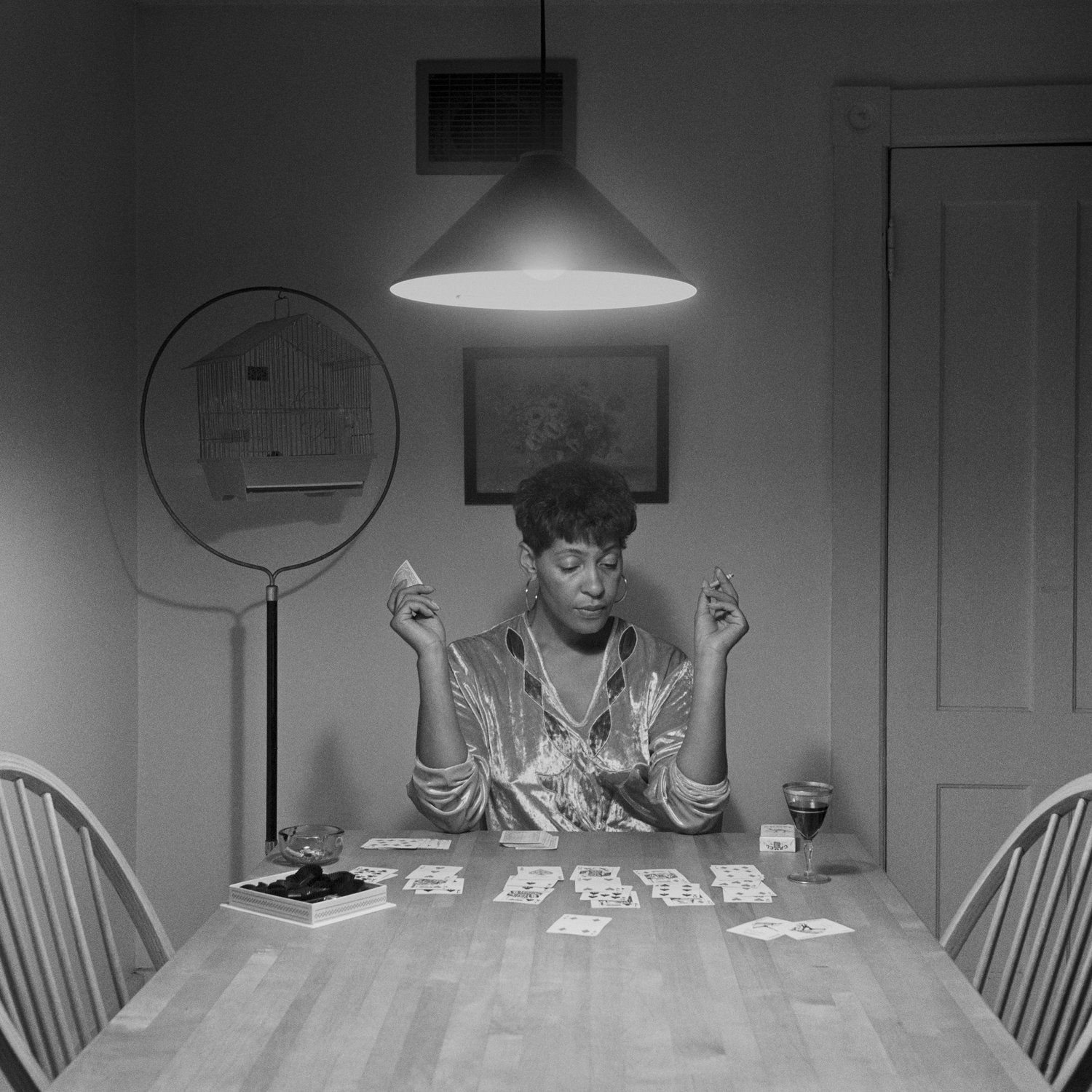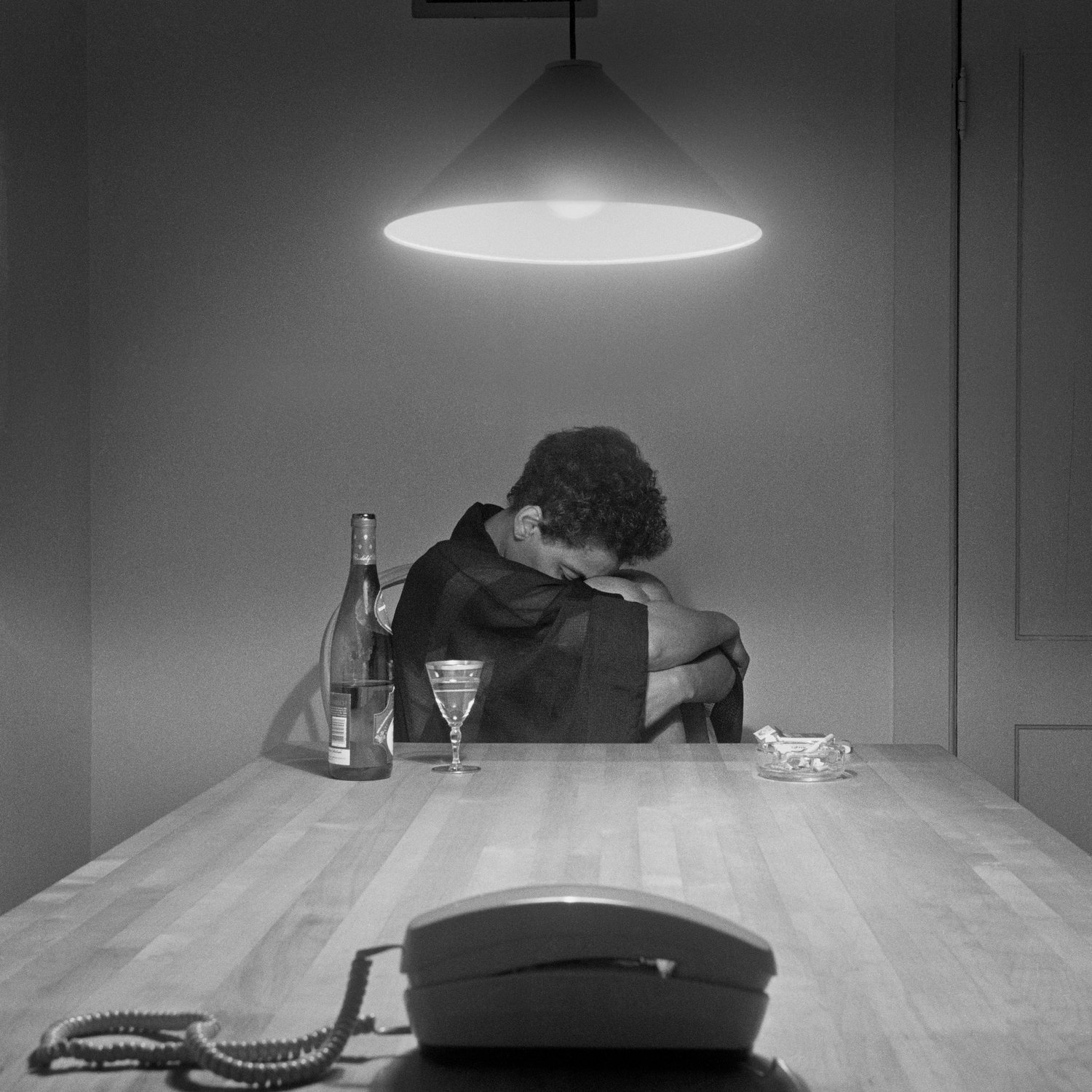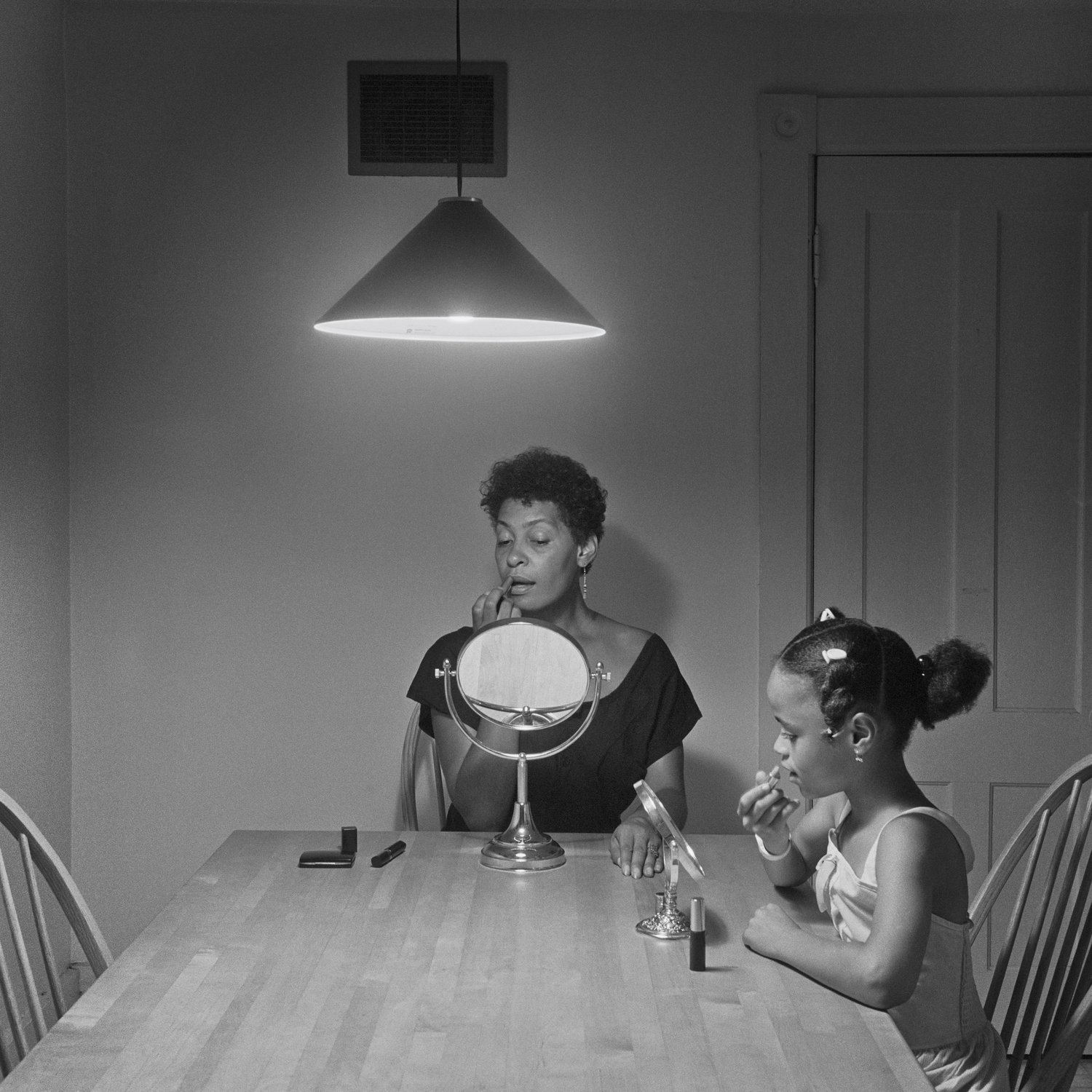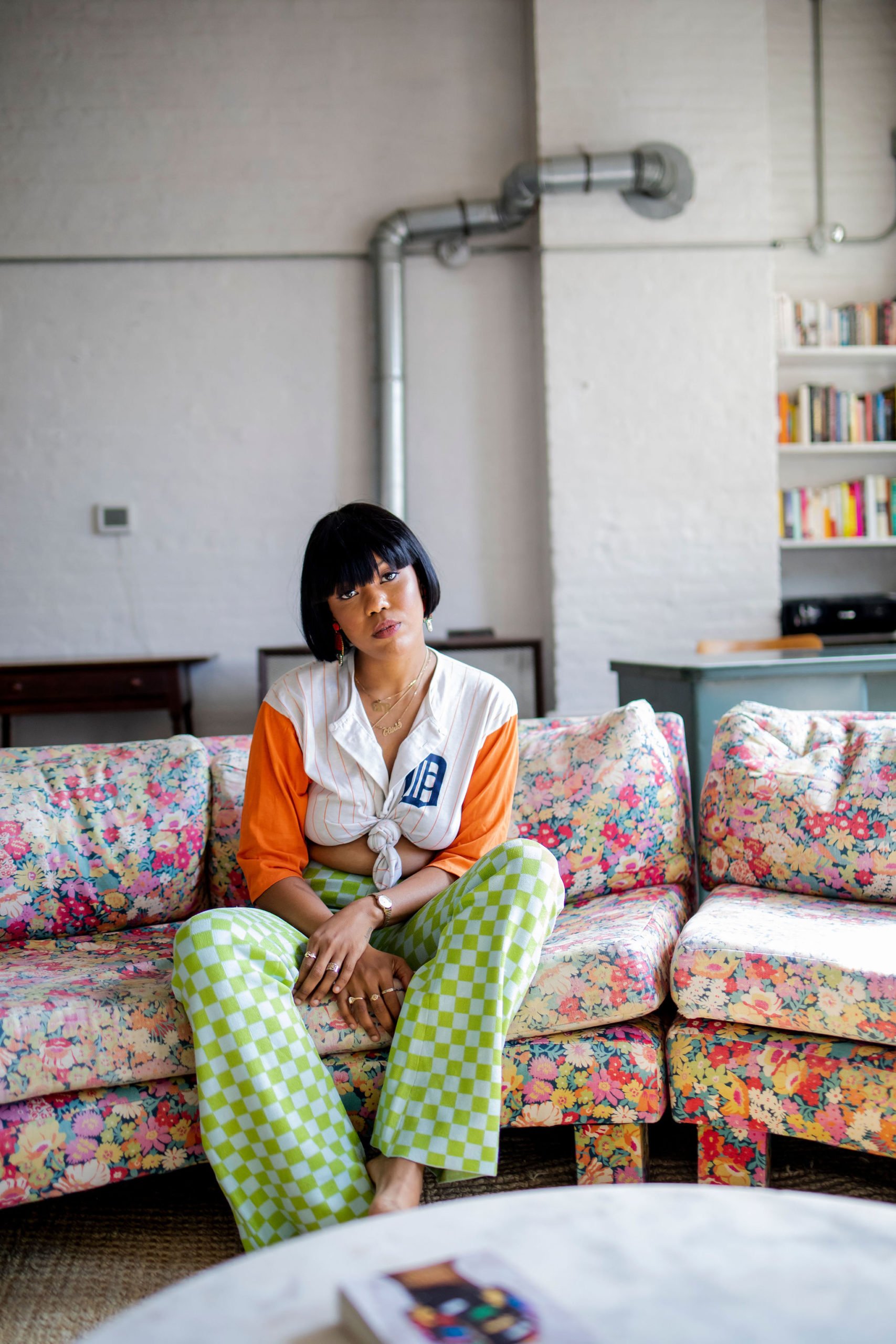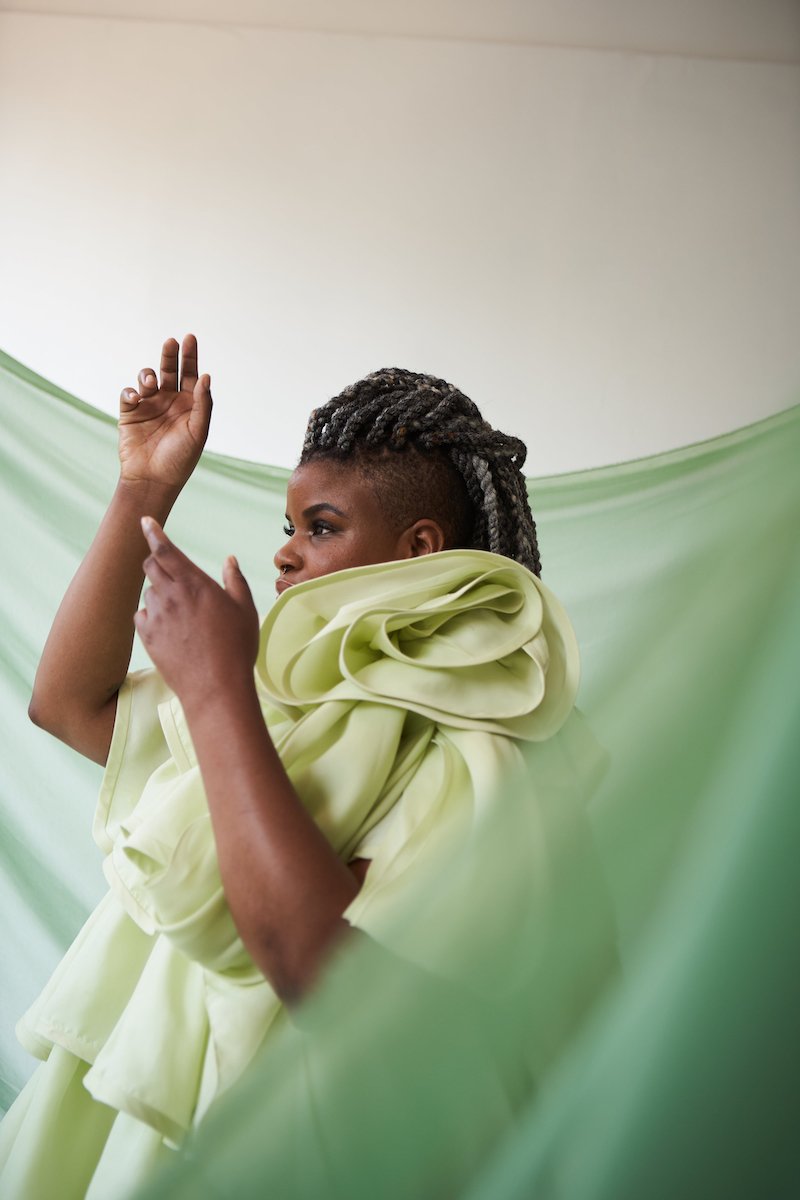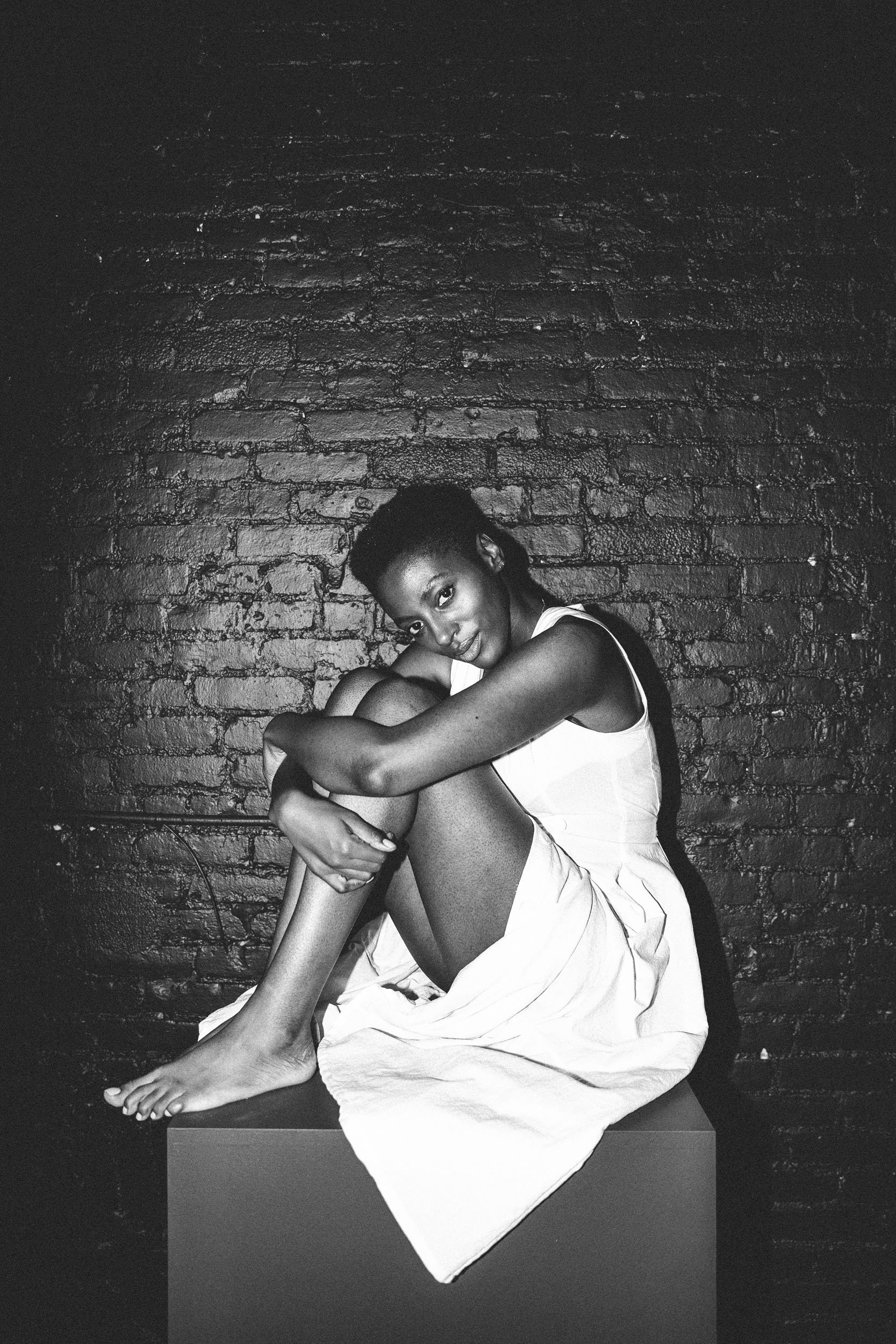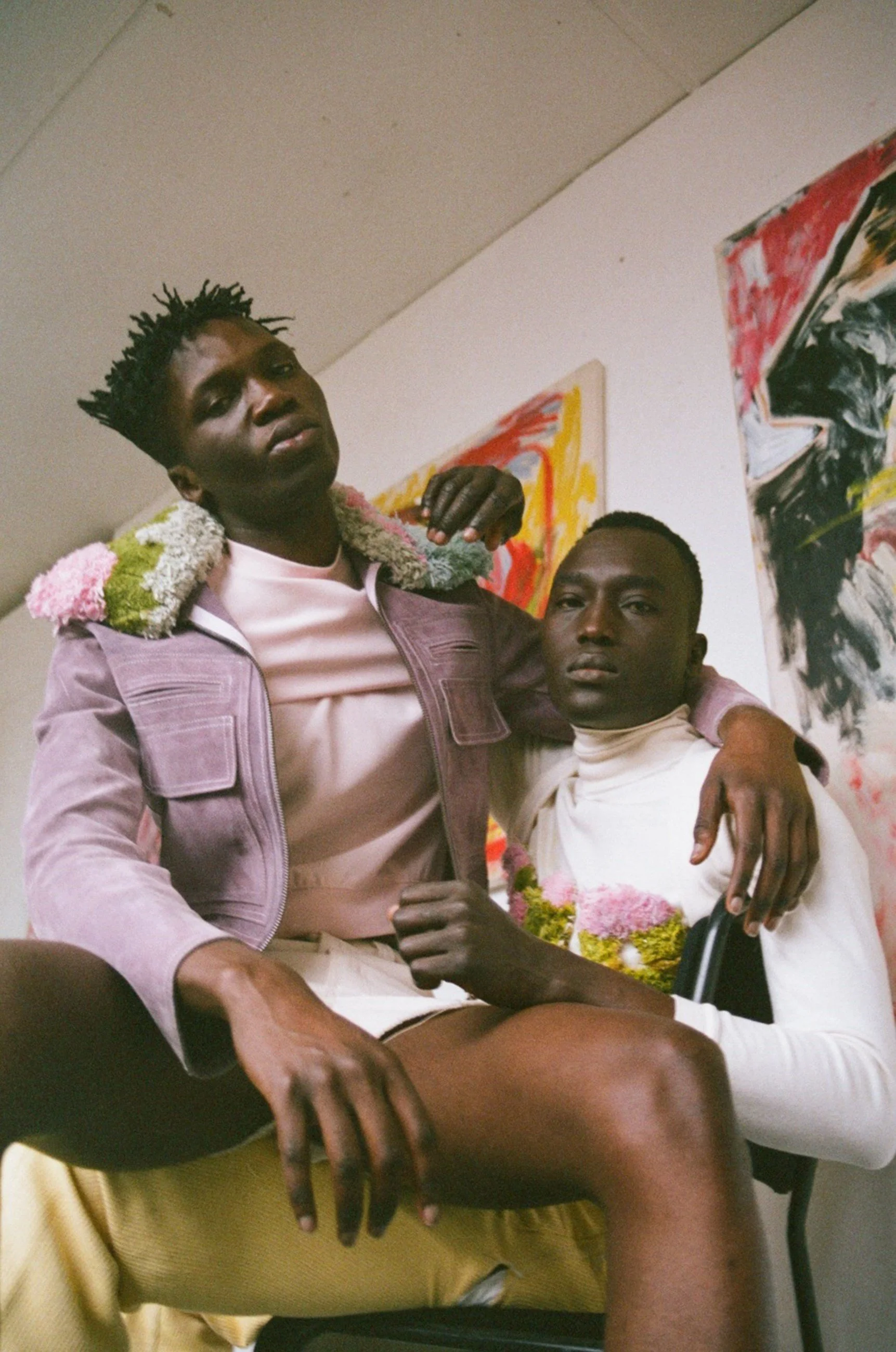About the Kitchen Table
My favorite coffee table book sits on my table next to a pack of playing cards. The following photos are in that book. Carefully arranged. Thoughtfully curated. I got out the shower not too long ago and walked past it reflecting on the woman who bought that book and the child who stole those cards.
When I was a kid I would find the crispiest pack of cards left after the cookout, party, holiday dinner, etc. and carry it off into some remote corner for a game of solitaire. The loneliness of that kind of habit isn’t lost on me, but it feels like a reminder that from a child, I always knew I had myself to contend with. I was the person most primed for playing, or learning, or listening, exactly the way I needed someone to.
That feels just as true at 24. I have friends for card games now. We can play spades over spilled drinks and laughter that fills a room. But I always remember for a moment what it was like before them. What it felt like to be so young sitting confidently and quietly with me…just me. I think that’s why this first photo speaks to me so often — why I come back to it.
This series reminds me of those lonely games of solitaire. Everything in the periphery, changing, full of feeling, people coming, going, staying longer than planned but always evident of the passage of time. Some kind of metaphor or simile feels appropriate here. Like satellites around a constant sun. Or many.
The constants: The table. The cards. Carrie. Me.
Queer Icons
A Celebration of Black Queer Expression
Icon /ˈīˌkän/ noun. a person or thing regarded as a representative symbol or worthy of veneration.
In honor of Pride month, we’re celebrating Blackness, queerness, and the creative spirits that give voice to the Black queer experience. This list lifts up some incredible writers, artists, and educators of this century, who decades after Stonewall, continue to live into the revolutionary legacy of Pride through their commitment to exploration in their activism and their artistry.
These icons offer to the world their brilliance and insight as a gift and we are better for it.
Explore their work.
Share their stories.
Get inspired.
Queer in this context is of course gay meaning beyond the binary of social systems and structures, defying hetero-normative conventions and gender roles. Here we take that definition further. Expanding it to uplift the inherit queerness of the Black experience, celebrating artists who speak to the kind of boundary pushing that started the first of many LGBTQIA+ liberatory actions more than 50 years ago.
Jasmine Mans | Poet
“I met a girl
who holds me
like she is fighting
for me
in her sleep.
If you ever decide to age,
love, invite me.
I’ll retire my bones
to make you tea,
and read you poetry.”
Ayana V. Jackson | Visual Artist
“Especially when it comes to historical documents, we often assume that the past is fixed. In doing so, however, we risk reproducing the arrangements of power that normalize White supremacist mythologies and therefore domination of non-White people. By confronting the archive, new systems of knowledge can be created. New knowledge can, and should, include new memories.”
Ericka Hart | Educator
“If I come in off the bat and I’m talking about queerness and trans people, and I don’t know, threesomes, that opens the floor to talking about pretty much everything because [it is clear that I won’t] shy away from talking about topics that people may find are hard or challenging to discuss.”
Yrsa Daley-Ward | Writer
“Do not go too far for peace and quiet do not run too far because the country can be as loud as the city too noisy in its stillness and anyway, there will always be your breath which, hard as you try, you cant do without you cant run away from. There will always be your heart beating stronger and louder the harder, the further you run.”
from Bone
adrienne maree brown | Writer
“Right now, emergent strategy is how we can intentionally get into the right relationship with the planet and with each other. Emergent strategy is focused towards people who have a desire to change the world. They see that something is wrong. They see that there's injustice, imbalance, and that deep transformation is needed. The question is, how does one transform oneself in order to bring about that transformation? It's also about creating the right relationship to change.”
Gabrielle Smith | Educator
“My favorite part of Non-Monogamy is the fluidity it allows me. No longer do I feel like my relationships have to be loaded with an end goal. No longer do they have to be strictly platonic or strictly romantic. They can just be.”
Jalen Amir King | Visual Artist
“Let’s stretch, challenge, mystify these Black things and look at them through an artistic context…that’s all that surrealism tries to do. It takes the common and puts it in this new atmosphere, and forces you to look at it differently.”
Devin-Norelle | Activist
“My community is my rock and foundation. To find a safe space and find others can be a powerful thing, motivating one another to take one more step forward and not feel so alone. That is a lot of the reason why I’ve been so excited to see the conversation around depression come to the forefront, to see support tools and resources developed that are more tailored to the various and unique intersections of our diverse community.”
Golden | Photographer
“I think that what I'm trying to do with a photograph is to visually show you what that process is like. This living is a byproduct of surviving anti-Blackness and surviving the transatlantic slave trade, but also surviving the day-to-day. I'm trying to show that all those things are happening together at once in a visual way and also to write about it. I feel like that's where the poems and the photography come together.
They are both attempts to do that.”
from Interview with Them
Want to highlight more Black queer visionaries? Submit a name and links to their work below!
On Fluidity
An intimate discussion on sexual fluidity and the gender binary
Now more than ever the impact of gender biases on the evolution of modern society is being investigated. From an increase in the marketing of unisex fashion to the normalization of inclusive language around gender identity in professional environments. These small shifts in our cultural practice are reflective of a much more powerful push against the gender binary and its conditioning.
This week I had the chance to connect with two incredible humans and friends of the blog identifying themselves within the fluidity of the LGBTQ+ spectrum. In between laughs, we discussed the relationships they have to their gender expression in a historically heteronormative world.
Due to the personal nature of this subject matter, names have been changed to protect the identities of our interviewees.
SF: Thank you both for sitting with me today. Starting off, for those reading this who won’t know you, what are your pronouns and how would you define your gender expression?
River: I identify as gender non-conforming and my pronouns are He/Him.
Kai: My pronouns are she/her and I really don’t think I’ve ever thought about this before now. As a femme woman, I love to dress in a way that makes me feel—for lack of a better word—pretty when I walk out the door. It’s the way I carry myself and that can differ depending on the day. Some days I’m feeling super “girly” and walk around hips swishing and hair flipping. On days when I feel more masculine, that’s the energy I carry. I like to dress/act/present myself based on how I feel and that’s how I define my gender expression.
SF: I love how intuitively you express your gender identity. It’s so deeply individual. With that in mind, how do you think your unique gender expression relates to your sexuality?
River: I definitely feel like it allows me to be more fully myself. Being able to tap into all of the energies that exist within me. I’m not forced to be someone I’m not or feel something I don’t. I get to embrace all of me — share all of me. Whoever that may be on any given day.
Kai: I don’t know…as someone who’s sexually attracted to people who identify as women, I think it can be hard. My gender expression is very external and I think the way I dress and carry myself most of the time throws the women I’m interested in off. I like pretty ass women and most of the time they are not checking for other pretty ass women — but that doesn’t stop the gravy train. I won’t alter the way I present myself for the convenience of others. The right people will find me.
SF: You are preaching to the choir my friend and I think that’s a great transition into my next question. So many of those assumptions by other people are tied to how they view relationship dynamics and masculinity vs femininity. How do you view the relationship between masculinity/femininity when it comes to sexual expression?
River: I would say that it all depends on societal perspective because what is masculinity and what is femininity? To me it’s nothing. I’m non-conforming so I don’t adhere to whatever definitions exist out in the world. However, I do think that masculinity in terms of sexual expression tends to be coded as more aggressive and direct while femininity embodies a flow and a softness. But it’s not black and white. There’s so much more in between.
Kai: That relationship for me is a very fluid one. I embrace that directness attributed to masculinity and the softness of my femininity in the way I connect to people. I’m a huge flirt so if I’m into you — I’ll bat my eyelashes and give a coy smile but I’m not breaking eye contact. When it comes to sex, society has taught us that dominance is a masculine thing and submission is feminine but I be feeling SUPER feminine when I’m in control. I don’t know how to describe it but it changes often which is why I said that relationship is a fluid one for me. I agree, there’s so much in between.
SF: It’s interesting that you both associate similar traits with masculinity and femininity. If you could change one thing about how relationships are viewed in this society, would you start with those terms?
Kai: I think If I could change anything I’d wish that as a society we didn’t relate masculinity and domination or femininity and submission. I think on one hand those associations can be harmful and on the other those relationships should be up to the individuals involved. They decide how they want to express themselves and what that means. It’s definitely a part of a deep stigma in the alphabet mafia. We buy into these labels like top and a bottom or dorm and sub, but it would be nice not to have them. We should just be sexy individuals doing sexy things with other sexy individuals.
River: I’d like to change everything about relationships from the dawn of time. When you think of Adam and Eve, you just know there was a woman and a man and you don’t think twice about it. But what if there was more? That story is the root of so many of these gender and sexual norms. That’s where it started. But if you really think about it—what does that story mean? Who told that story? Who wrote it? These rules didn’t make themselves.
Reflections from the Interviewer
These rules didn’t make themselves. They have been shaped and changed over time just like any others. LGBTQ+ representation in mainstream media and government is being rallied for as a necessary part of social reform. Public forums on gender inclusivity and sexual exploration are pushing cultural boundaries and defining political movements.
These cultural conversations go far beyond definitions of masculinity and femininity — they’re targeting the very nature of how we make space for and embrace one another as a society. Thankfully, people like Kai and River are at the forefront of these conversations. Rewriting the rules that have for far too long kept people from being their most expansive selves.
In My Room: Jalena
Interview with NY-based digital marketing strategist, Jalena Shand
Summer ‘22 —— Long Island City, NY
Over the last five years, I have found myself around countless uniquely talented people from fascinating backgrounds. These people are writers, teachers, producers, filmmakers, designers, and organizers from all over who are out in the world authentically doing dope sh*t (read: work).
In My Room is a photo series I started as a way to capture the remarkable people behind the art, lens, films, writing, etc., in the space that reflects the rawest and most vulnerable aspects of who they are: their bedrooms. With Frank Ocean’s song of the same title (not a coincidence) playing in the background, I started creating an outline for what I envisioned this project to be — who I wanted to spotlight, what I wanted to talk about, and where I was willing to go to make it happen.
This visioning brought me to my first series subject and muse, Jalena. We met over a year ago, working together on various projects and articles for Imanigold, and I’ve been one of her biggest fans ever since. As a social media wizard, brilliant content creator, and all-around creative powerhouse, Jalena is a constant source of inspiration. She’s a beloved member of my creative community and one of the hardest-working people on any team.
So naturally, it was an honor to be welcomed into her room to highlight the beauty behind the badass.
Jalena, 21
SF: On social media and in your work, you advocate for mental health. You also speak openly about how our external environment shapes how we care for ourselves internally. How would you describe the relationship between you, your mental health, and your space?
JS: Oof—think for me, it’s more of my space affecting my mental health more than the other way around. I realized early on in life that when I'm sad or anxious, my “comfort spaces” often get messy and overwhelmed. I started making a point to do the little things: ALWAYS making my bed before I head out, using those candles that I had only reserved for special occasions, or rearranging my space like it’s about to be featured in a magazine. I make myself feel safe and special. I focus on creating an environment that’s more than just livable because that’s how my best self deserves to live…even when I don’t feel like it.
SF: You constantly have to give the best of yourself to other people. It’s so important to remember to give back to you. Thinking about your “best self” and the badass version of you that has to go out into the world—what version of Jalena do you feel like you get to be here at home?
JS: I feel like a social chameleon so often that there are times I don’t know who to be when I’m alone. When there is no other person to please or to reflect. It’s only recently that I’ve gotten closer to seeing my most authentic self at home. While my entire career is built upon aesthetics and social media, honestly, I’m not too fond of it. Spending so much time curating an image…It feels suffocating.
The version of me I get to be at home is who I wish I could be everywhere else. “Jalena off the grid.” Not relying on external validation. In a state of following my instincts instead of walking on eggshells around accommodating everyone else.
SF: I know that navigating the New York City housing crisis was a major hurdle for you this year—can you share a little bit about that and how you got here?
JS: I was humbled to my core back in May. I thought I had seen it all after living in a windowless and AC-less room in Bushwick for a year and a half—I was wrong.
After searching for an apartment for three months, the day came when I finally had to move out, and I had no lease or place to move into. Luckily, I have an aunt and cousin that live in the city. I reached out and we gathered all of my belongings in trash bags and old cardboard boxes to stash in their places. I ended up finding an apartment a week later. But those seven days were hell. I was sleeping on a couch, wearing clothes out of a bag, and navigating to find an apartment, all the while working a nine-to-five job. Within two hours of posting, I would show up to apartment listings on my lunch break to discover the place had already been rented. It was ruthless.
SF: Settling into your own space is really about the rituals you create for yourself. After so much transition, what rituals transformed this long-awaited apartment into your home?
JS: My number one ritual, or way of living, is filling the air with music. I grew up playing vinyl 24/7. My parents even engraved the words “music and love forever” on their wedding rings. From the moment I move into a new space, I need a good song and Ari Lennox’s New Apartment is usually my go-to. Once I’ve been somewhere long enough to settle, I play all my favorites like Bill Withers, Donny Hathaway, and Al Greene.
Making this room feel like me when I’m still learning about myself is interesting. I’m learning that plants, music, and sunlight are what keeps me the most connected to myself. Everything else around me could change (and it does), but my rituals have to keep all those elements in the mix.
SF: When you think about what helps you stay grounded outside of the comfort of your room, is there anything you take with you on the go?
JS: When I feel really thrown for a loop, I usually grab an old piece of art or a sketchbook and go outside. Sometimes it results in me just staring at a blank page and other times, I come back with something to hang on a wall at home.
SF: Who do you get to be here that you don’t get to be anywhere else? What aspects of yourself feel the most free?
JS: At home, I get to be young, sometimes ignorant, and utterly confused. I tend to put up this facade of having my shit together. I constantly receive compliments like, “wow, you’re so mature for your age.” I’m just over twenty-one and landed a job where people a year or two from thirty report to me.
In my room, I get to find myself, be myself, and lose myself with no expectation. I can lean into whatever emotions come my way, feel them, and express them without worrying about how that will impact the perception other people have of me. I get to be me.
Want to hear more?
Check out the Imanigold blog for Jalena’s thoughts on navigating social media with healthy boundaries.
Washing of the Hands
Poem 001 - featured in Sistories Litmag Issue II: Correspondence
I washed their hands one by one.
A dozen souls or more,
At my feet to be cleansed.
Fingers sprawled against linen
Open
Splayed
In preparation for the taking.
The length of each digital bone stretched across
the warmth of my palms.
Wet.
A soothing cool.
We whispered to each other,
In heartbeats
And soft moans.
Inhaling my exhale
as a thank you for being.
This moment ours.
Holy.
Under watchful waiting eyes.
May this confession render us sanctified.
Featured In SISTORIES Litmag Issue II: Correspondence
